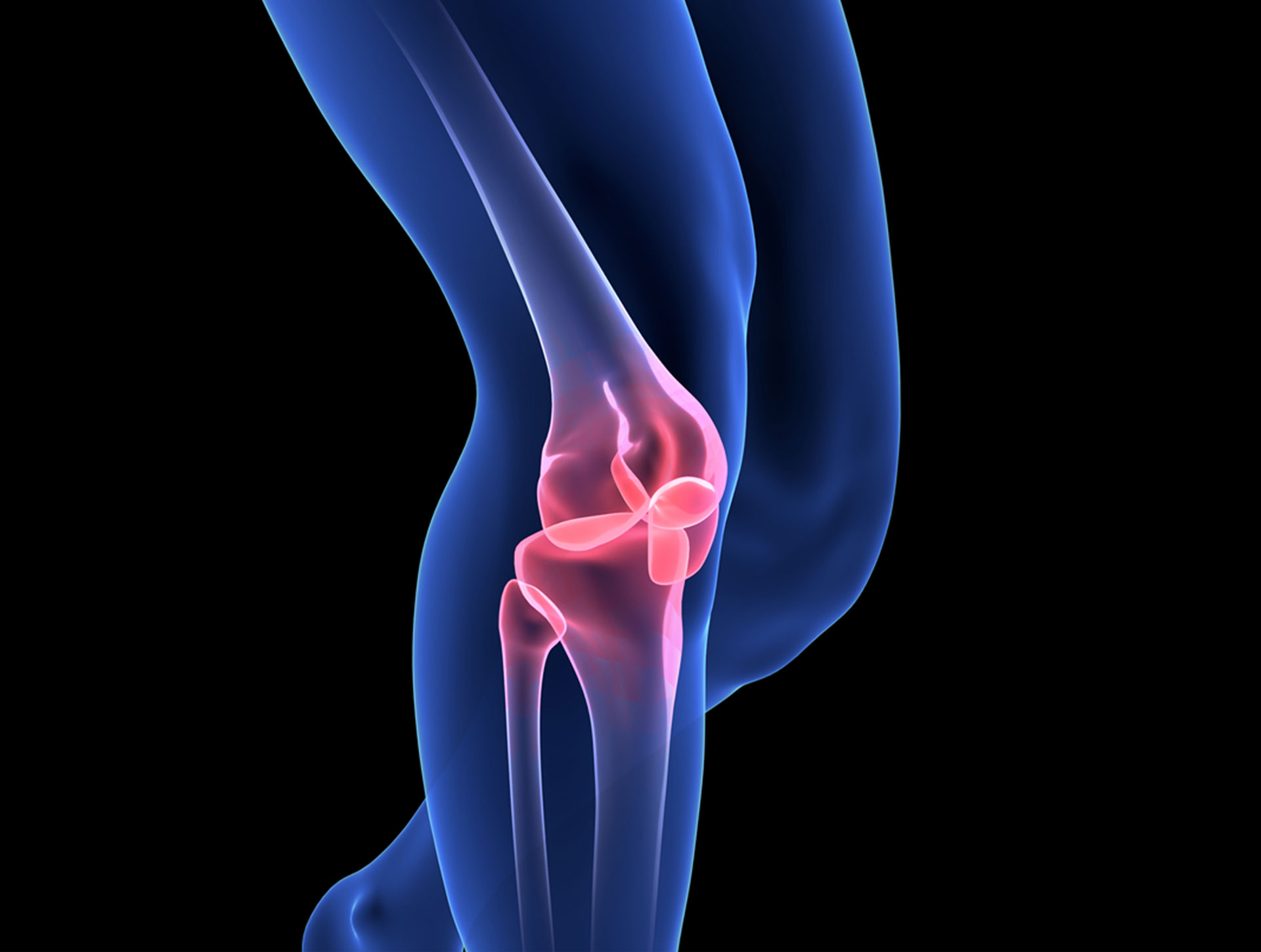
Orthox Secures Funds Approaching £3 million from Wellcome Trust and Technology Strategy Board to Support Clinical Development Programme
Orthox is developing products which target repair and tissue regeneration of injuries to the Meniscal and Articular Cartilage in the knee. Each year over two million patients suffer serious knee injuries which require damaged cartilage tissue to be surgically removed. Orthox’s platform technology, FibroFix™, is a remarkable silk-based biomaterial which combines the smooth, resilient, high strength found in cartilage with the capacity to support regeneration of new tissue when implanted.
A Translation Award of £1.22 million from the Wellcome Trust will support first in man clinical trials of Orthox’s two lead products: FibroFix™ Meniscus which repairs defects in the shock absorbing meniscus in the knee, and FibroFix™ Cartilage, which aims to resurface lesions in the articular cartilage that covers the ends of the bones in the knee joint.
A Biomedical Catalyst Fund award of £1.73 million from the UK’s Innovation Agency, The Technology Strategy Board, will support manufacturing upscale and a market approval clinical trial of FibroFix™ Cartilage.
These awards secure The Company’s funding position and will build on the preclinical product development achieved on Orthox’s previous £1.6 million Translation Award from the Wellcome Trust and three earlier awards from the Technology Strategy Board’s Regenerative Medicine programme.
Commenting on the announcement, Nick Skaer, CEO of Orthox said:
“Securing these significant financial awards from the UK’s two leading Biomedical funding programmes demonstrates the progress made by the Company in preclinical trials of our unique FibroFix™ product platform. This will enable us to implement the FibroFix™ clinical programme with our partners at the Avon Orthopaedic Centre in Bristol, allowing us to deliver the benefits of our products to patients suffering the debilitating effects of serious knee cartilage injuries.”
Commenting on the Wellcome Trust Award, Richard Seabrook, Head of Business Development at the Wellcome Trust said:
“We urgently need a solution for knee injuries that is resistant to wearing and fixes the problem whilst helping the body to repair itself, to help people stay active for as long as possible. This is a complex clinical problem but we are encouraged with the progress that Orthox has made with their FibroFix™ technology and look forward to seeing how the products perform in clinical trials.”
Commenting on the Biomedical Catalyst Fund Award, Dr Helen Kuhlman Lead Technologist, Medicines and Healthcare at the Technology Strategy Board said:
“The Orthox project is a good example of both the innovative technology and the commercial potential the Biomedical Catalyst seeks to support. The government’s recent decision to continue to support the Biomedical Catalyst Fund acts as confirmation that it is meeting its objectives of supporting innovative solutions for healthcare problems on their journey to commercialisation and has now ensured a further round of funding, now under way.”
Commenting on the FibroFix™ Clinical Trials Programme, Prof Ashley Blom, Head of Orthopaedic Research at Bristol University and Study Principal Investigator said:
“Orthox’s FibroFix™ technology has exciting attributes from a clinical perspective which may allow more effective treatment of common knee cartilage injuries. Preclinical performance of the implant is impressive and we look forward to initiating clinical trials of FibroFix™ at Southmead Hospital next year.
-Ends-
For further information, please contact:
| Orthox Ltd
Nick Skaer, CEO
|
Tel: +44 (0) 1235 232 110
Email: info@orthox.co.uk Web: www.orthox.co.uk
|
Notes to Editors
Orthox
Orthox is an Oxford based company developing medical devices to repair damaged cartilage. Employing a revolutionary “scaffold” technology, FibroFix™’, which is based on fibroin, a protein found in silk fibres, Orthox has a pipeline of FibroFix™ devices aimed at helping the body to heal defects in joints and bones which would in many cases lead to major surgery to implant a total joint replacement prosthesis.
Orthox’s FibroFix™ tissue scaffolds have been developed by parent company Oxford Biomaterials, which was spun out of Oxford University in 2002. The scaffold’s porous structure supports human cell growth with the aim of gradually being infilled by regenerating tissue. FibroFix™ tissue scaffolds combine these features with great resilience and a high mechanical strength which can be closely matched to the strength of the tissue being repaired, giving them a clear advantage over traditional materials.
By combining great strength and excellent capacity to support tissue regeneration Orthox’s aim is to provide products which allow surgeons to repair cartilage injuries in a way that not only functionally compensates for the injury in the short term, but also allows a long term solution through the bodies own capacity to heal itself.
Meniscal repair
The meniscus is a crescent-shaped cartilage pad found in the knee joint between the femur (the thigh bone) and the tibia (the shin bone). The meniscus acts principally as a shock absorber, to dissipate forces and stabilise the knee joint.
Meniscal injury is a huge, unsolved clinical problem, especially with ‘baby boomers’. It is associated with aging, obesity, and sport injuries. Damage to the meniscus is difficult to repair successfully and frequently results in osteoarthritis; eventually knee joint replacement is often required. Knee replacements now cost the NHS more each year than total hip replacements, estimated at nearly £1bn.
Approximately 1.3 million meniscal arthroscopies – knee repair procedures – are performed in the developed world each year, but there is currently no proven long term effective remedy. A recent American study estimated that almost half of all adults will develop osteoarthritis of the knee by age 85; the odds increase if people are obese in middle age.
Articular Cartilage repair
The articular cartilage in the knee is the smooth, tough (hyaline) cartilage which covers the ends of the femur (thigh bone) and tibia (shin bone). It protects the surface of these bones and allows the joint to operate smoothly.
Approximately three quarters of a million patients in the US and Europe suffer from traumatic, often sports-related, injuries to articular cartilage in the knee each year. This has been increasing at a rate of 10% per annum, and this growth is expected to continue. Knee cartilage damage can lead to osteoarthritis, which results in a significant number of total knee replacements each year.
At present, lesions in articular cartilage are usually treated by debridement (trimming away the damaged tissue), and/or microfracture (punching holes in the subchondral bone, to allow bleeding and formation of scar and fibrous tissue). Neither results in lasting prevention of osteoarthritis and surgeons are increasingly seeking alternatives.
Technology Strategy Board
The Technology Strategy Board is the UK’s innovation agency. Its goal is to accelerate economic growth by stimulating and supporting business-led innovation. Sponsored by the Department for Business, Innovation and Skills (BIS), the Technology Strategy Board brings together business, research and the public sector, supporting and accelerating the development of innovative products and services to meet market needs, tackle major societal challenges and help build the future economy. For more information please visit www.innovateuk.org.
The Wellcome Trust
The Wellcome Trust is a global charity dedicated to achieving extraordinary improvements in human and animal health. It supports the brightest minds in biomedical research and the medical humanities. The Trust’s breadth of support includes public engagement, education and the application of research to improve health. It is independent of both political and commercial interests. For more information please visit www.wellcome.ac.uk.


